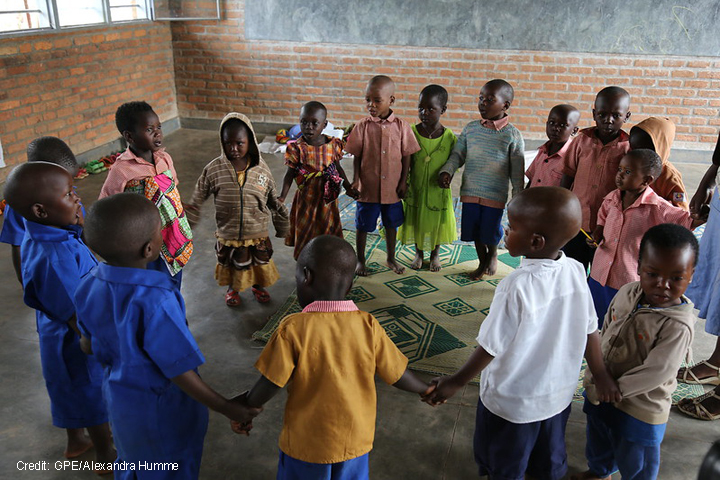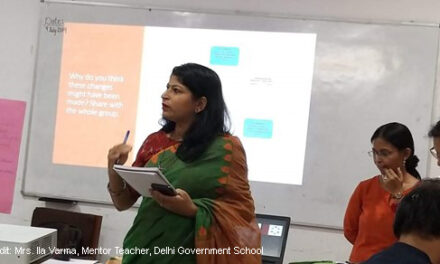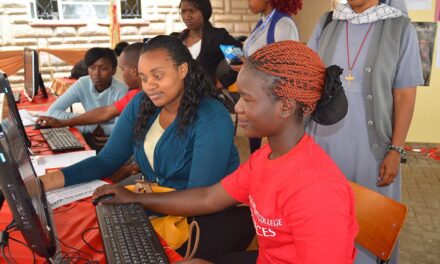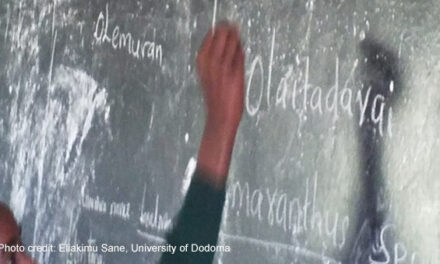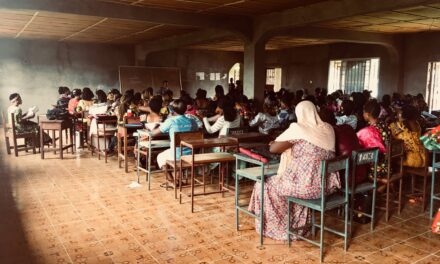This blog was written by Stephen Bayley, ESRC Postdoctoral Research Fellow at the University of Cambridge. His work focuses on education for adaptability and how children in low-income settings develop skills like creativity and problem solving.
Recent events on a global scale have highlighted the importance of nurturing children’s resilience to cope with adverse life events. The COVID-19 pandemic has denied many students access to critical learning opportunities, while exposing them to increased stresses and risks, whether relating to economic hardship, domestic responsibilities or family pressures around early marriage. Even before COVID-19, natural disasters, conflict and the effects of climate change posed particular challenges for many of the most vulnerable learners, undermining basic systems for their survival and uprooting them from their homes and communities.
As part of the ‘Resilience, Protection and Wellbeing’ theme of the 2021 UKFIET conference, a group of education researchers and practitioners had the opportunity to share their findings and experiences regarding different systems for promoting resilience. In some cases, these focused at the macro level, through professional support communities for school leaders to navigate shocks and interruptions, or the contribution of socio-emotional learning to close educational inequalities. In other cases, the presentations centred on children’s own experiences of adversity, their capacity for adaptation and the roles they can take in building greater resilience in their personal ecosystems, at home and in school.
Regarding the latter, Nomisha Kurian [1] opened the discussion with a thought-provoking account from her research in India. She juxtaposed a teacher’s perceptions of a seemingly distracted and disinterested pupil with the student’s own accounts of the challenges she faced moving to a new school shortly before the pandemic, and the importance of building supportive friendships against the backdrop of home trauma and turmoil. By contrast, Danielle Falk [2] described the positive role of teachers as caregivers for some children in Uganda and South Sudan. She highlighted the interaction between roles, relationships and resources across different aspects of learners’ socio-ecological systems to protect their wellbeing and ensure that basic needs like food are met.
Adopting a different approach, Stephen Bayley outlined the findings of research in Rwanda examining children’s capacity to adapt through the lens of cognitive flexibility. He reported a lack of association between learners’ flexibility and their literacy, but higher scores among pupils from single-parent families, in both bases contrasting with research from the US. Together, these point at the importance of nurturing children’s diverse outcomes and the multiple channels through which skills like resilience can be shaped.
Finally, Clodagh Byrne, Purna Shrestha and Jessica Sanyu from VSO shared their experiences of using child-led participatory action planning to build resilience by first identifying the barriers that restrict learners’ access to quality education. Drawing on case studies in Ethiopia and Rwanda, they described children’s involvement in processes like mapping, visualisation and charting timelines to better understand the factors behind pupils’ different vulnerabilities, such as disability or exposure to extreme weather patterns like flooding. The learners could then contribute to the creation of school preparedness plans and propose strategies to reduce risks and increase resilience.
Across the presentations, a common theme emerged regarding the value of understanding the different ecosystems within which children develop and learn. Enablers or obstacles at the home, school and community levels may affect not just students’ ability to access and advance through education, but also the coping skills and resilience they acquire to face the challenges of life ahead. In practice, these highlight the importance of collaborative interactions between stakeholders in these domains, for example among parents, teachers and community leaders, and suggest the need for more joined-up solutions and multisectoral strategies to promote effective childhood resilience.
**********
[1] Faculty of Education, University of Cambridge. For further details of Nomisha’s work on cultures of care for child and teacher wellbeing see:Culshaw, S. & Kurian, N. (2021). Love as the lifeblood of being-well: a call to care for teachers in England’s schools. Journal of Pastoral Care in Education, 39(3). DOI: 10.1080/02643944.2021.1938647.
Kurian, N. (2020) ‘Kindness isn’t important, we need to be scared’: disruptions to the praxis of peace education in an Indian school, Journal of Peace Education, 17(2).
[2] Teachers College, Columbia University. This project is part of the European Union-funded Building Resilience in Crises through Education (BRiCE) initiative. The Primary Investigator is Mary Mendenhall, Ed.D., and the co-researchers are Danielle Falk and Daniel Shephard.
